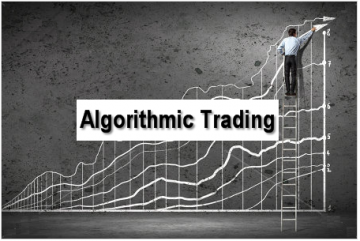Published by Taylor Financial Group
Algorithms and rule-based systematic trading systems have gone from representing nearly 30% of the market to now dominating up to 90% of market trades on any given day. How a computer algorithm views stocks is perhaps one of the most important factors driving a stock price today, but few people have any clue how it works, what algorithms think about their stocks, and why a stock may be moving up or down in price.
Algorithmic trading — proprietary computer programs that can perform thousands of trades a second — has become a reality for global markets.
Most trading algorithms respond to the same evidence people do, selling, for instance, if they recognize certain triggers. But, they may do it more quickly and in volume. Indeed, on a typical trading day, computers account for 50% to 60% of market trades, according to Art Hogan, chief market strategist for B. Riley FBR. However, when the markets are extremely volatile, they can make up 90% of trades.
If an algorithm appears to sell rashly or emotionally, analysts said, it is because a human taught it to do so. Some algorithms use their mathematical speed to exploit tiny fluctuations in price, buying and reselling within a fraction of a second. Others attempt to predict how markets will move by analyzing a torrent of data points, including indicators in labor-market news releases and the wording of politicians’ speeches. There are designers who are building algorithms to gauge the speaking tone and inflection of Federal Reserve officials, looking for signs of how people will trade.
Investment advisers say the algorithms can contribute to a climate of fear when they are involved in helping to quickly drive the market down.
So far, the effect of the machines has been to speed up cycles of selling and buying, so that you can now have a stock market sell-off and recovery in hours instead of weeks and months.
Some claim that when prices fall so quickly, algorithms and high-frequency trading can accentuate declines because machines will automatically respond to the falling price by selling. Sometimes these trades make money, and sometimes they don’t.
Without humans, common sense or moderation, these algorithm trades can create havoc on the markets and undermine confidence, which is a problem for everybody. As we head into a more turbulent market, all investors need to be wary of this trend and how it can affect their portfolio, particularly over the short term. Do not panic when you see these extreme swings – – they are part of our new reality. Instead, stay focused on your long-term goals and the plan in place to get your there.
Sources:
- https://seekingalpha.com/article/4101073-systematic-algorithmic-trading-impacts-stocks-benefit-understanding
- https://www.washingtonpost.com/news/the-switch/wp/2018/02/06/algorithms-just-made-a-couple-crazy-trading-days-that-much-crazier/?utm_term=.12e28687fb30
- https://money.cnn.com/2018/02/06/investing/wall-street-computers-program-trading/index.html




